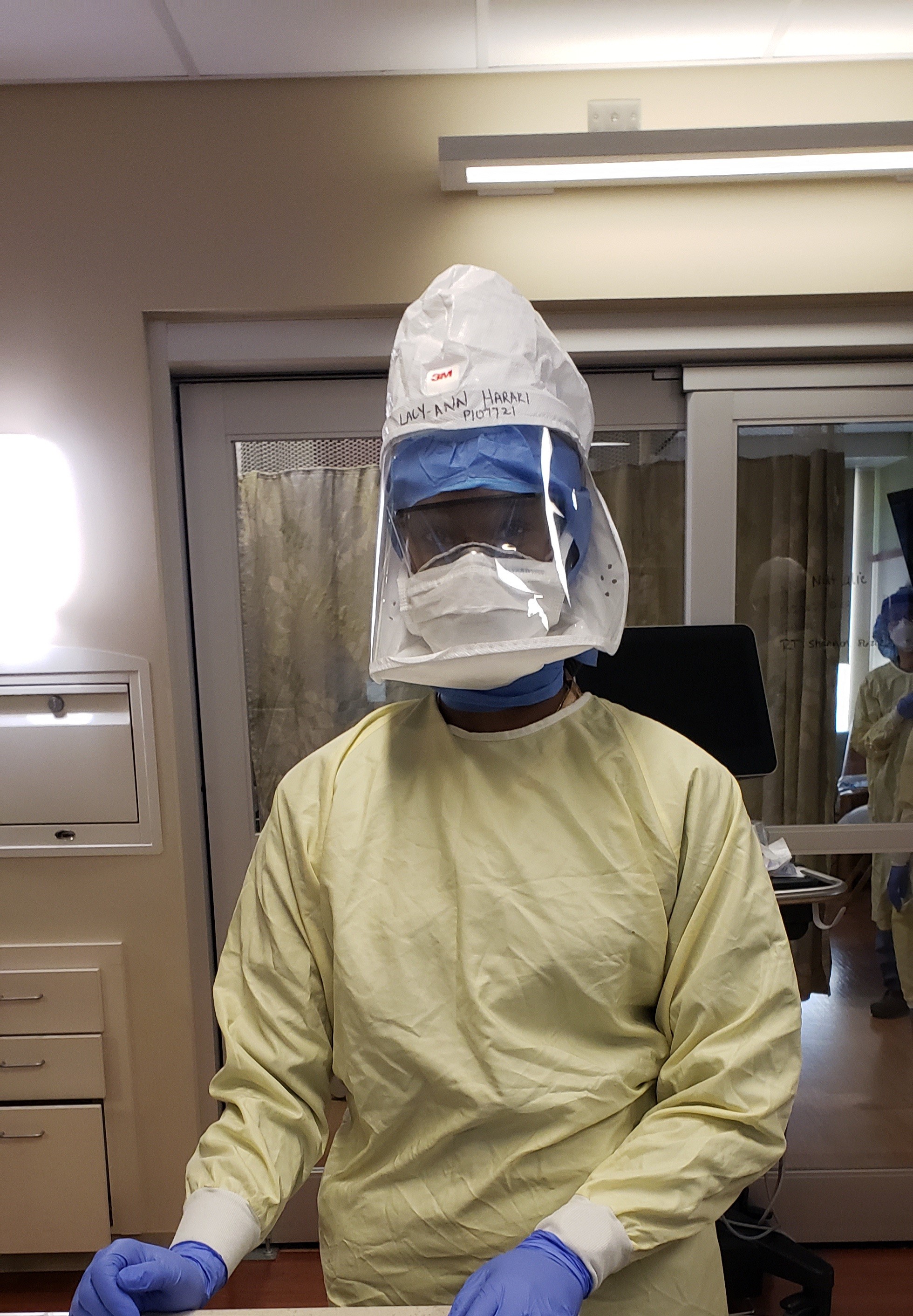Dr. Lacy Ann Harari
“It's my duty to get up every day and do this”
 When Dr. Lacy-Ann Harari, head of anesthesiology at Saint Joseph’s Hospital in Denver, worked her first 12-hour shift to assist with intubating COVID-19 patients in the intensive-care unit, she experienced an instance of fear. She had donned all the protective gear she could and had prepared to the best of her ability. So much was still being learned about this virus. She wondered whether her preparation was sufficient.
When Dr. Lacy-Ann Harari, head of anesthesiology at Saint Joseph’s Hospital in Denver, worked her first 12-hour shift to assist with intubating COVID-19 patients in the intensive-care unit, she experienced an instance of fear. She had donned all the protective gear she could and had prepared to the best of her ability. So much was still being learned about this virus. She wondered whether her preparation was sufficient.
“Do I have enough to shield me from the thing I'm willingly walking toward?” she wondered at the time. “It was a moment that I don't think I'd ever experienced before, where the personal risk was so high, and I was walking into it with that knowledge."
This anesthesiologist’s fear quickly gave way to a higher sense of purpose, though, as she confronted the reality of the high mortality rate for patients who are so sick they require a ventilator.
“I realized that half the patients I intubate will not wake up. I will be one of the last people they see,” she says. “Just thinking about the responsibility of that really changed the way I walked into the room. My fear of what could happen to me took a step back, and instead I just felt the profound responsibility for managing what could be one of the last moments in this person's life."
One of her approaches became checking to ensure that patients had the opportunity to have a recent conversation with loved ones. No matter what, the breathing tube would prevent them from speaking for a period of time, and family members weren’t allowed to visit. It would be a while before they could communicate. She recalled one case in which some time had passed since the patient’s last interaction with his spouse.
“You should call your wife,” she told him. “We’ll wait.”
Dr. Harari wants others to also be able to reconcile fear with reality. It’s important for people to have information and understand the risks so they can behave accordingly. Staying home and maintaining appropriate social distances can keep people safe and healthy.
The current crisis can help all individuals be more aware and empathetic. Everyone is potentially vulnerable. Everyday activities that might have seemed mundane in the past aren’t, anymore.
“This (intubation) is not just another procedure that we do,” Dr. Harari says. “So easily, the practice of medicine can become rote, but it's always important to be mindful of this other person's moment.”